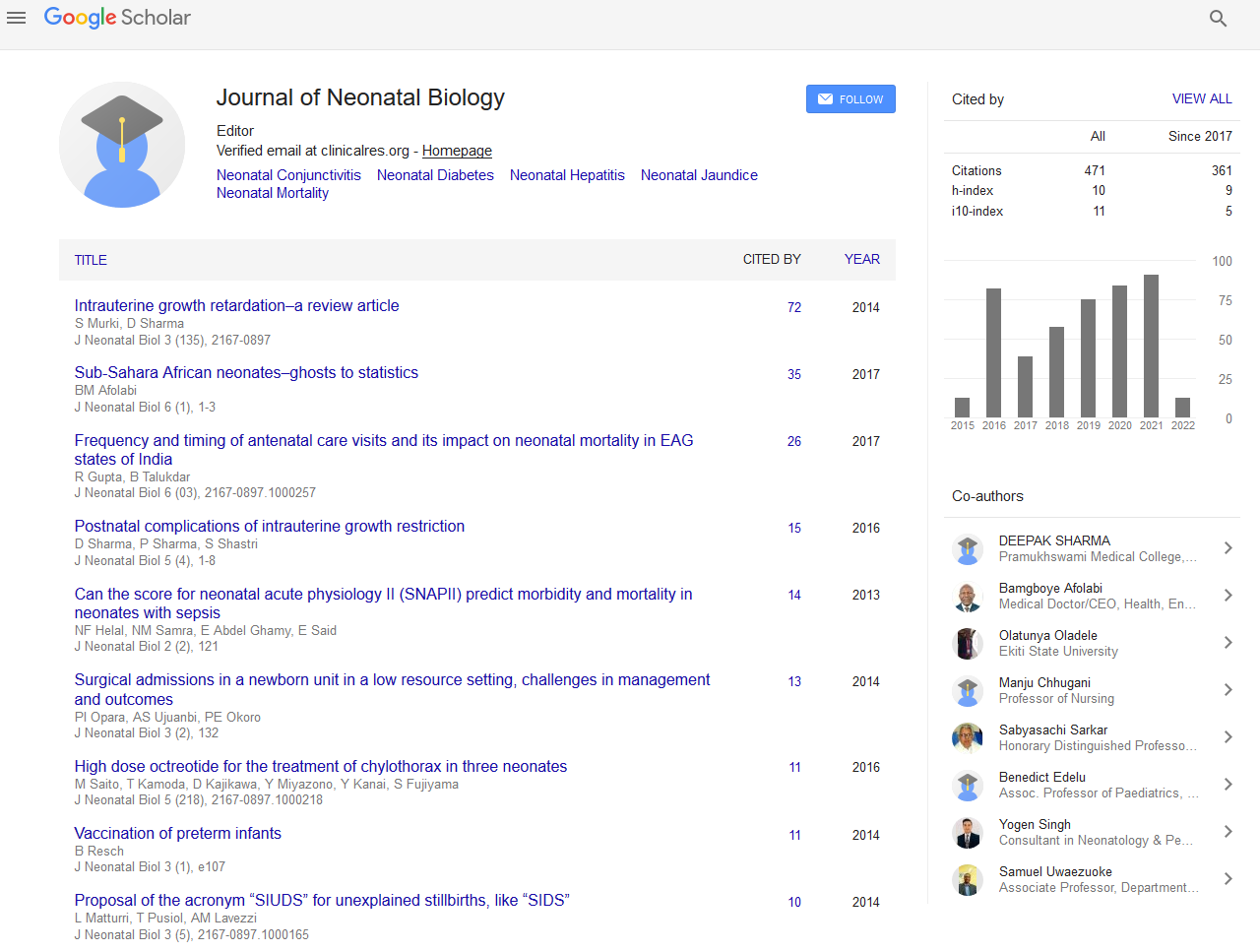PMC/PubMed Indexed Articles
Indexed In
- Genamics JournalSeek
- RefSeek
- Hamdard University
- EBSCO A-Z
- OCLC- WorldCat
- Publons
- Geneva Foundation for Medical Education and Research
- Euro Pub
- Google Scholar
Useful Links
Share This Page
Journal Flyer

Open Access Journals
- Agri and Aquaculture
- Biochemistry
- Bioinformatics & Systems Biology
- Business & Management
- Chemistry
- Clinical Sciences
- Engineering
- Food & Nutrition
- General Science
- Genetics & Molecular Biology
- Immunology & Microbiology
- Medical Sciences
- Neuroscience & Psychology
- Nursing & Health Care
- Pharmaceutical Sciences
Abstract
Rapid Versus Slow Advancement of Feeds in Preterm Babies Less than 34 Weeks in Incidence of NEC and Feed Intolerance
Rahul Mansing Kadam, VSV Prasad and Murali Santosh
Objective: To evaluate whether preterm neonates less than 34 weeks at birth receiving rapid enteral feeding advancement at 25-30 ml/kg/day and those receiving slow enteral feeding advancement at 15-20 mL⁄kg⁄day to attain full feeding (180 ml/kg/day) are atincrease in the incidence of necrotizing enterocolitis or feed intolerance.
Study design: Retrospective cohort study.
Setting: Level III Neonatal Unit in Southern India Subjects: Neonates born at <34 weeks of gestational age and admitted to the NICU during study period were enrolled.
Outcome: Mortality and major morbidity - NEC as per Bell staging, incidence of feedintolerance.
Results: Both groups had similar baseline characteristics. The average gain in weight, length and head circumference were significantly lower in the slow feeding group as compared rapid feeding group. The mean days to reach birth weight was less in rapid feeding group; 12.43 vs. 15.46 in slow feeding group (p=0.04). It was inferred that duration of hospital stay (22.58 vs. 31.34 days) and parenteral nutrition( 8.69 vs. 11.18 days) was less in rapid feeding group as compared to slow feeding group (p= 0.04). Powered by Editorial Manager® and ProduXion Manager® from Aries Systems Corporation Rapid feeding group does not have increased episodes of feed intolerance or NEC (5 vs. 6 cases) compared to slow feeding group. Conclusions: Our study support enteral nutrition by rapid enter


